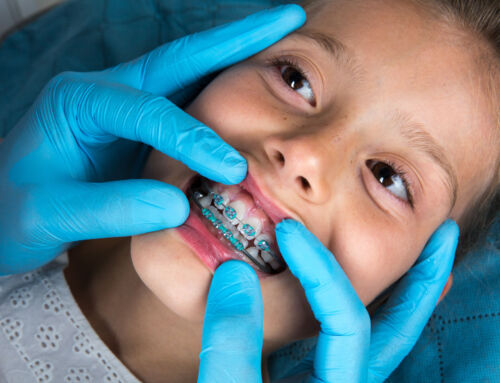Gone are the days that orthodontic treatment is used only for creating a beautiful smile! Orthodontics is traditionally associated with cosmetic treatments such as braces or aligners, but it can also be used to address a variety of medical conditions, including sleep apnea. By repositioning the jaw and opening the airway, orthodontic treatments can help alleviate the symptoms of sleep apnea, improve breathing, and promote better overall health and quality of life.
There are numerous benefits to exploring orthodontic treatment for sleep apnea, but here are the top 5 benefits of using orthodontic treatment to alleviate sleep apnea:
- Less invasive alternative
- Corrects dental and facial abnormalities
- Increases airway space
- Alleviates irritating symptoms
- Improves quality of life
Less Invasive Alternative To Surgery Or CPAP
While orthodontic treatment might seem invasive, in that you have to allow people to work inside your mouth, the treatment itself is far less invasive than alternatives such as surgery or CPAP therapy. Some surgeries, such as orthognathic surgery, may help to improve your airway’s function, but are extremely invasive and a long process to recover from. Using a CPAP (continuous positive airway pressure) machine may seem less invasive, but over time it may prove to be less efficient as well.

Correct Dental And Facial Abnormalities
Orthodontic treatment corrects dental and facial abnormalities that may contribute to sleep apnea, such as narrow arches or a recessed chin. You may not even be aware that you or one of your family members has one of these abnormalities, but an orthodontist will be able to identify any potential sleep apnea triggers in your facial structure. With early treatment, you may even be able to avoid the need for further treatment down the road.
Increase Airway Space
The muscles in the back of your throat are key culprits if you are experiencing sleep apnea. A lack of airway space leads to intermittent breathing overnight, due to your airway being blocked. Orthodontists typically use appliances such as palatal expanders or mandibular advancement devices to widen the palate or advance the lower jaw to increase the airway space and reduce sleep apnea symptoms. Palatal expanders are effective mainly in children and young patients whose bones are still developing and can be encouraged into their proper spaces.
Alleviate Irritating Symptoms
If your family complains that you snore, that might be a sign that you need to see an orthodontist. Orthodontists can help alleviate these irritating symptoms by repositioning the jaw and opening the airway. Orthodontic treatment can help get rid of common sleep apnea symptoms such as snoring and interrupted breathing during sleep, helping you (and your family!) get better nights of sleep.
Improves Quality Of Life And Overall Health
By improving sleep quality and reducing the risk of health problems associated with sleep apnea, such as cardiovascular disease and diabetes, orthodontic treatment for sleep apnea can improve your overall quality of life and well-being. If sleep apnea is no longer an issue for you, you’ll finally be able to sink into the deep, restorative sleep you’ve been missing out on.
Best Local Orthodontist In Fort Worth
If you’re ready to say goodbye to the nagging, threatening issues that sleep apnea poses, it’s time to seek out quality orthodontic treatment to help you move past them. At Ahava Orthodontics, Dr. Barron and his staff know just how frustrating and scary sleep apnea can be, and they will work alongside you to come up with a treatment plan that will target your issues and set you up for overnight breathing success. Call Ahava Orthodontics today at 817-926-9777 to schedule a consultation exam so we can get started on helping you feel your best!




